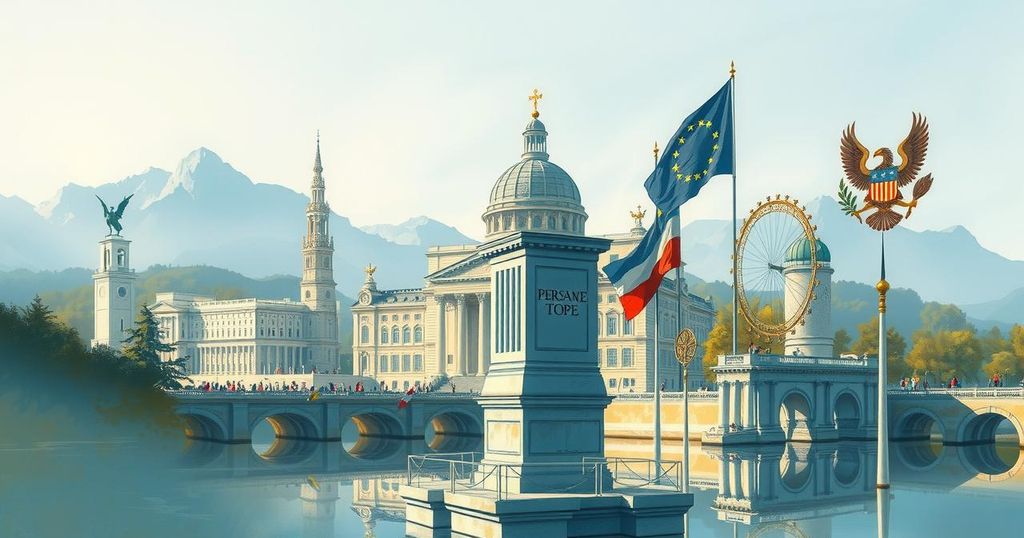French President Emmanuel Macron has shifted his focus to global diplomacy, collaborating with U.S. President Trump and British leaders to support Ukraine and enhance European defense. Following a domestic crisis, Macron reaffirms France’s influential role in European politics while facing criticisms from opponents and geopolitical backlash from Russia.
French President Emmanuel Macron has made a significant return to global diplomacy, engaging positively with U.S. President Donald Trump and advocating for a peace plan for Ukraine alongside British leadership. Following a tumultuous domestic period characterized by a hung parliament, Macron has capitalized on foreign policy opportunities, shifting his focus from domestic challenges to solidifying European security efforts.
At 47 years old, Macron has established a friendly rapport with Trump, unlike many other leaders. Macron was the first European official to meet with Trump after his re-election in an effort to persuade him to support Ukraine against Russian aggression. He has positioned himself as a key figure in European politics, leveraging U.S. policy changes to further a strong, sovereign Europe.
Since his election in 2017, Macron has advocated for a robust European defense strategy. He has emphasized the importance of military cooperation and independent initiatives, notably criticizing NATO’s declining efficacy. In response to calls for enhanced defenses, EU leaders committed substantial financial resources towards military enhancements amid warnings of potential Russian threats.
Recently, Macron announced he would explore expanding French nuclear deterrents to European allies, reinforcing France’s role as a global power rooted in historical military strategies. French Minister Benjamin Haddad endorsed these initiatives, asserting they will elevate the European influence on the global stage during turbulent times.
Macron’s reinforced partnerships with fellow leaders, such as UK Prime Minister Keir Starmer, underscore collaborative efforts to bolster defenses for Ukraine. They are actively pursuing a peace proposal that includes potentially deploying European forces. Furthermore, Friedrich Merz, Germany’s new leader, prioritizes strengthening Europe and aims for a degree of independence from the U.S. following their discussions on nuclear cooperation.
In contrast, Russia has criticized Macron’s militaristic stance as driven by domestic distractions, dismissing his nuclear deterrent proposals as provocative. Russian officials have labeled Macron’s ambitions as positioning France to become Europe’s nuclear overseer—a claim met with skepticism, given France’s comparatively smaller nuclear arsenal. President Vladimir Putin invoked historical parallels to Napoleonic failures, while Macron responded by branding Putin as an imperialist.
Despite facing significant political challenges domestically, including criticism for not decisively tackling internal issues, Macron continues to leverage his constitutional powers to steer foreign policy with a focus on asserting France’s prominence in European and global arenas. His activities, although contentious, reaffirm his resolve to navigate through leadership trials while maintaining a strong international presence.
In conclusion, President Macron’s return to the forefront of global diplomacy marks a strategic pivot from domestic crises to a robust emphasis on European defense and international relations. His ability to foster alliances, particularly within Europe and with the United States, showcases a commitment to a stronger and unified European presence in global affairs. Nevertheless, domestic criticisms and geopolitical tensions, especially with Russia, highlight the complexities he must navigate during his presidency until 2027.
Original Source: www.jordannews.jo




